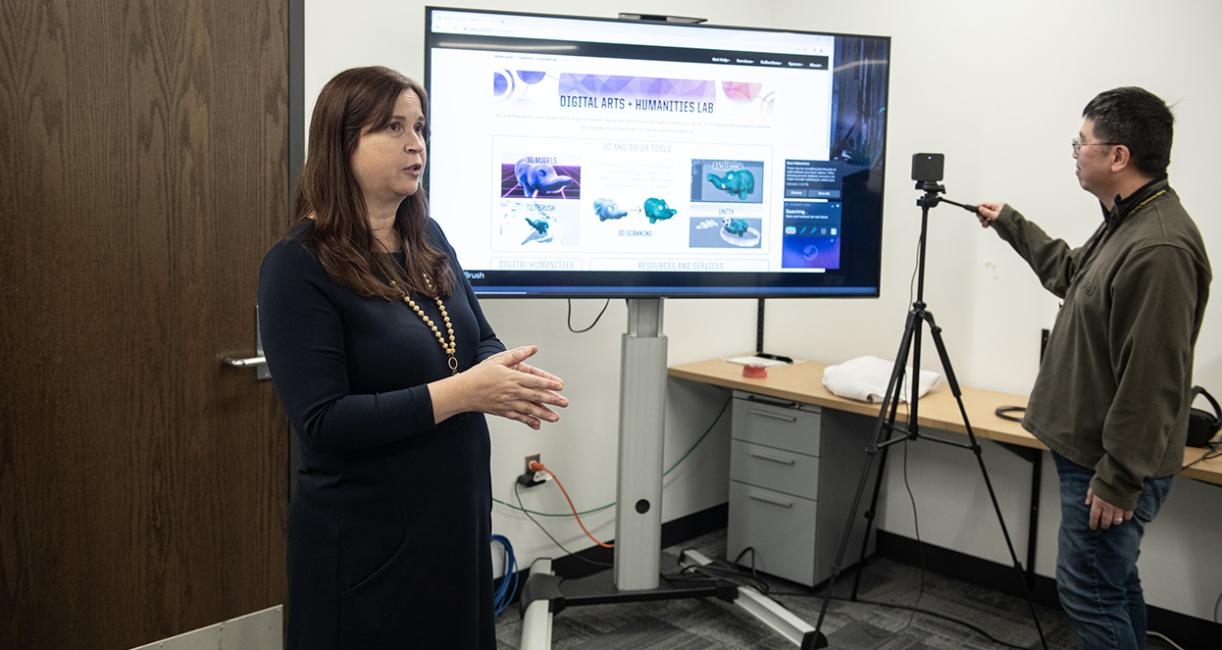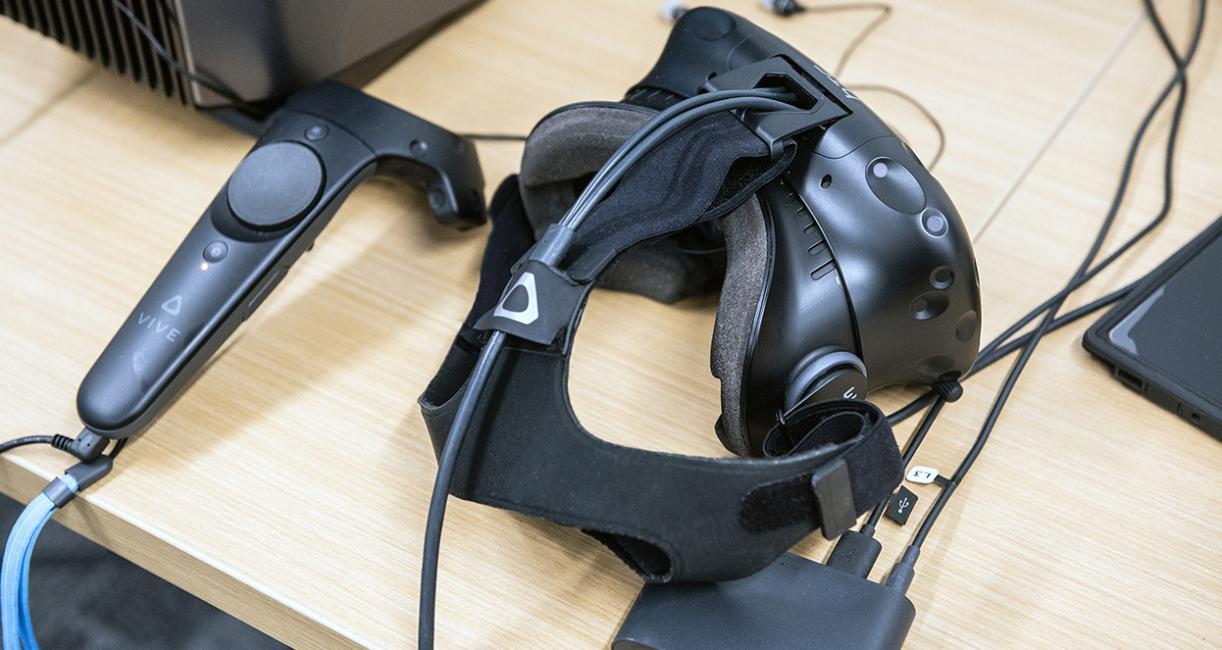



Library's digital arts and humanities lab wants to show students what it can offer
By Blake Sebring
January 16, 2024
Helmke Library’s digital arts and humanities lab describes itself online as “an interdisciplinary and collaborative space to support digital scholarship and connect students and faculty to innovative technologies to achieve learning discovery objectives and realize creative endeavors.”
That covers a lot, so it might actually be easier to start out with a few examples of what the lab can help produce rather than trying to explain it right off the bat.
One includes production of web-based resources like the Purdue University Fort Wayne Encyclopedia. Another involves lending assistance with digital publications such as last year’s 50th anniversary of the Women’s Studies Program. Other services include support with 3D or AR/VR technologies.
The lab’s workstations can expand what anyone might think is a limited opportunity. Staff members don’t teach students as much as guide them through using the equipment and software. That might include 3D scanning or painting and drawing, animation, and digitization. Essentially, the lab encourages students and faculty to keep expanding what their own achievements might be.
“Part of why it is difficult to pin down [exactly what we offer] is that we really like to be adaptable to what people need,” said Erika Mann, the library’s director of library technology and digital Initiatives. “We’re really here to support. What is your project? Or what are you trying to accomplish, and let’s see how we can help you do that.”
It’s not a place to come in and play video games, but maybe to spark ideas on creating them. People often come in with general ideas about what they want to do and the staff helps refine and facilitate them. Team members—including Lin, Graham Frederick, a library systems specialist, and student lab assistants—are constantly learning and often get as challenged as the students.
“How can we use technology whether it’s VR or programming to help either solve a problem, help you with scholarship, or help you with your project? How can that support what you are doing?” Mann said. “We keep adapting to what people bring us. We’ll figure it out.
“We’re trying to figure out how can that be part of the assignment in your class, how can it be part of your project? How can it help enhance the work you are doing?”
For instance, Vice Chancellor for Academic Affairs Carl Drummond once asked for some fossilized coral to be scanned so he could study it without it possibly being damaged. Students have even taken pieces from a steering wheel and game controller to be 3D-scanned at the Mastodon Makerlab to fix broken equipment.
Adaptation in the lab also comes from responding to faculty and student requests. During the fall semester, the lab collaborated with the Department of Computer Science to establish a computer programming consulting program employing graduate computer science students to assist faculty, staff, and students with statistical software and modeling, software development, software implementation, data integration, or any other computer science or information systems directly impacting research and teaching projects.
Mann said the lab also provides guidance on platforms for creating a digital book or collection and on open-source applications that can perform text analysis or build graphics so data patterns are easier to visualize and understand.




